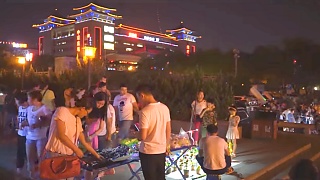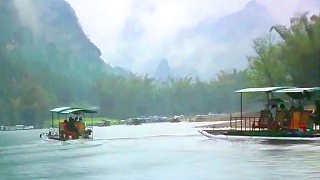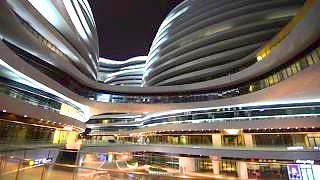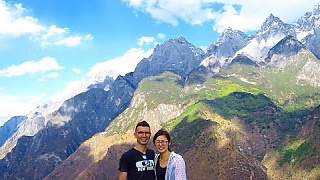With China Walking Tour ...
[640],shadow=true,start=,stop=Welcome to WuHan, China
Introduction
WuHan, the capital city of HuBei province, is located at the confluence of the Yangtze and Han rivers in central China. Known as the "Thoroughfare of Nine Provinces," WuHan has long been a major transportation hub, serving as a gateway between northern and southern China. With a rich history that spans over 3,500 years, WuHan is a city of contrasts, blending ancient traditions with modern advancements.
The city is composed of three historic towns: Wuchang, Hankou, and Hanyang, which were merged in 1927 to form modern WuHan. Today, it is a bustling metropolis with a vibrant economy, cultural heritage, and a thriving arts scene.
History of WuHan
WuHan's history dates back to ancient times, with its origins in the Spring and Autumn Period (770-476 BC). The city's strategic location along the Yangtze River made it an important center for trade and military defense. Wuchang, Hankou, and Hanyang each developed unique characteristics over the centuries, contributing to the diverse cultural landscape of the region.
During the Qing Dynasty, WuHan became one of the four most famous towns in China, known for its bustling commercial activities. The city played a significant role in the 1911 Revolution, which led to the fall of the Qing Dynasty and the establishment of the Republic of China.
In the 20th century, WuHan continued to grow as a major industrial and educational center. It was also the site of several key events in modern Chinese history, including the WuHan Uprising and the WuHan Incident.
Top Attractions in WuHan
Yellow Crane Tower
The Yellow Crane Tower is one of the most famous landmarks in WuHan. Originally built in 223 AD during the Three Kingdoms period, the tower has been destroyed and rebuilt several times throughout history. The current structure, completed in 1985, stands as a symbol of WuHan's rich cultural heritage. Visitors can enjoy panoramic views of the Yangtze River and the city from the top of the tower.
East Lake (Donghu)
East Lake is the largest urban lake in China, offering a tranquil escape from the bustling city. The lake is surrounded by scenic parks, gardens, and walking trails. Key attractions around the lake include the Mo Hill Scenic Area, the Chu Culture Museum, and the WuHan Botanical Garden. The lake is particularly beautiful in spring when the cherry blossoms are in full bloom.
WuHan University
WuHan University is renowned for its beautiful campus, especially during the cherry blossom season in late March and early April. The university's historic buildings, lush gardens, and peaceful atmosphere make it a popular destination for both tourists and locals. It is also one of China's top universities, with a rich academic tradition.
GuiYuan Temple
GuiYuan Temple is a famous Buddhist temple in WuHan, known for its exquisite architecture and serene ambiance. Founded in the 17th century, the temple is home to a large collection of Buddhist scriptures and statues. The temple’s Five Hundred Arhats Hall is particularly noteworthy, featuring life-sized statues of 500 arhats (enlightened disciples of Buddha) in various poses.
Hubei Provincial Museum
The Hubei Provincial Museum is one of China's leading museums, offering a comprehensive look at the region's history and culture. The museum's most famous exhibit is the Marquis Yi of Zeng's tomb, which includes the remarkable bronze chime bells. The museum also features artifacts from the Chu culture, ancient jade carvings, and traditional musical instruments.
Local Culture
WuHan is a city with a rich cultural heritage, shaped by its long history and diverse population. The city is a melting pot of different cultures, blending traditional Chinese customs with influences from other regions and ethnic groups.
One of the most notable cultural aspects of WuHan is its connection to Chu culture, an ancient civilization that thrived in the region over 2,000 years ago. The Chu culture is known for its distinctive art, music, and religious practices, many of which are preserved in WuHan's museums and cultural institutions.
WuHan is also known for its vibrant arts scene, with numerous theaters, galleries, and cultural events taking place throughout the year. The WuHan International Acrobatic Art Festival and the WuHan Yangtze River Piano Music Festival are just a few examples of the city's cultural offerings.
Local Cuisine
WuHan's cuisine is a reflection of its geographical location and cultural diversity. The city is known for its hearty and flavorful dishes, which often feature freshwater fish, rice, and a variety of spices. Some must-try dishes include:
- Re Gan Mian (Hot Dry Noodles): A signature dish of WuHan, Re Gan Mian is a breakfast staple made from wheat noodles tossed in a sesame paste, soy sauce, and chili oil. It is typically garnished with pickled vegetables, garlic, and green onions.
- Doupi: A traditional snack made from sticky rice, minced pork, and yellow soybeans, wrapped in a thin tofu skin and pan-fried until crispy.
- Steamed Wuchang Fish: A famous dish from the Yangtze River, Wuchang fish is steamed with ginger, garlic, and soy sauce, and served with a drizzle of hot oil.
- San Zhi Er: A local delicacy made from pig's feet, duck's feet, and chicken feet, braised in a rich, savory sauce until tender.
- Lotus Root Soup: A popular dish in WuHan, this soup is made with lotus root, spare ribs, and goji berries, creating a nutritious and flavorful broth.
Street food is also an integral part of WuHan’s culinary scene, with night markets offering a wide range of snacks and local specialties. Don't miss the chance to sample WuHan’s street food, such as grilled skewers, fried dumplings, and stinky tofu.
Visitor Tips
- Best Time to Visit: The best time to visit WuHan is during the spring (March to May) and autumn (September to November) when the weather is mild and pleasant. These seasons also coincide with the blooming of cherry blossoms and the changing of autumn leaves.
- Getting There: WuHan is a major transportation hub, with direct flights to major cities around the world. WuHan TianHe International Airport is the main gateway to the city. WuHan is also well-connected by China's high-speed rail network, with trains to and from Beijing, Shanghai, Guangzhou, and other major cities.
- Public Transportation: WuHan has an extensive public transportation system, including buses, taxis, and a growing metro network. The metro is the most convenient way to get around the city, with signs and announcements in both Chinese and English.
- Language: While Mandarin is the official language, the local dialect, WuHanese, is widely spoken. English is not commonly spoken, so it's advisable to have a translation app or basic Mandarin phrases ready.
- Respect Local Customs: When visiting religious sites, such as temples, dress modestly, and be respectful of local customs. Always ask for permission before taking photos of people, especially in traditional settings.
WuHan in Modern History
WuHan has played a pivotal role in China's modern history, particularly during the 20th century. The city was the starting point of the 1911 Revolution, also known as the Xinhai Revolution, which led to the overthrow of the Qing Dynasty and the establishment of the Republic of China. The Wuchang Uprising, which took place on October 10, 1911, is considered the beginning of this revolution, and WuHan is often referred to as the 'Cradle of the Revolution.'
Wuhan, the capital city of Hubei Province in central China, is a vibrant and dynamic metropolis with a rich history, cultural heritage, and modern amenities. Situated at the confluence of the Yangtze and Han rivers, Wuhan is known as the River City and serves as a major transportation hub and economic center in China. Here's a guide to Wuhan for visitors:
Historical and Cultural Attractions:
Yellow Crane Tower (Huanghelou): This iconic landmark, dating back over 1,700 years, offers panoramic views of Wuhan and the Yangtze River. It's a symbol of the city's rich cultural heritage and is surrounded by lush gardens and scenic vistas.
Guiyuan Temple: Explore this ancient Buddhist temple, renowned for its intricate architecture, serene gardens, and impressive collection of Buddhist scriptures and artifacts.
Hubei Provincial Museum: Delve into the history and culture of Hubei Province at this world-class museum, which houses a vast collection of artifacts, including ancient artifacts from the Warring States period and exquisite bronze bells from the Spring and Autumn period.
East Lake (Donghu): Escape the urban hustle and bustle with a visit to East Lake, the largest urban lake in China. Explore its scenic walking paths, tranquil pavilions, and picturesque landscapes.
Wuhan University: Stroll through the picturesque campus of Wuhan University, one of China's most prestigious universities, known for its beautiful gardens, historic buildings, and academic excellence.
Modern Landmarks:
Yangtze River Bridge: Visit the first bridge to span the Yangtze River, a symbol of Wuhan's engineering prowess and economic significance. The bridge offers stunning views of the river and the city skyline.
Han Street (Hanjie): Explore this vibrant pedestrian street, lined with shops, restaurants, and entertainment venues. Han Street is a popular destination for shopping, dining, and nightlife, with a lively atmosphere day and night.
Culinary Delights:
Hot Dry Noodles (Re-gan Mian): Sample Wuhan's most famous dish, hot dry noodles, a simple yet delicious noodle dish served with sesame paste, chili oil, and other seasonings.
Wuhan Soup Dumplings (Jiaozi): Indulge in these savory soup dumplings, filled with flavorful broth and meat or vegetable fillings. They're a popular street food snack and can be found at markets and food stalls throughout the city.
Practical Information:
Transportation: Getting around Wuhan is convenient, with an extensive public transportation system that includes buses, the Wuhan Metro, and ferries across the Yangtze River.
Accommodation: Wuhan offers a wide range of accommodation options, from luxury hotels to budget-friendly hostels, catering to different preferences and budgets.
Language: Mandarin Chinese is the official language, but some locals may speak English, especially in tourist areas.
Safety: Wuhan is generally safe for travelers, but it's always wise to take standard precautions regarding personal belongings and travel safety.
Unique Experiences:
Cherry Blossom Festival: Visit Wuhan in spring to witness the breathtaking cherry blossoms in full bloom at Wuhan University and other scenic spots around the city.
Yangtze River Cruise: Embark on a cruise along the mighty Yangtze River, passing through picturesque landscapes, historic towns, and the famous Three Gorges.
Wuhan offers visitors a fascinating blend of history, culture, and modernity, with a diverse array of attractions, culinary delights, and unique experiences waiting to be discovered. Whether exploring ancient landmarks, strolling along scenic riverbanks, or savoring local cuisine, visitors to Wuhan are sure to be captivated by the city's charm and vitality.

 WuHan city, capital of HuBei province – night and day
WuHan city, capital of HuBei province – night and day






















